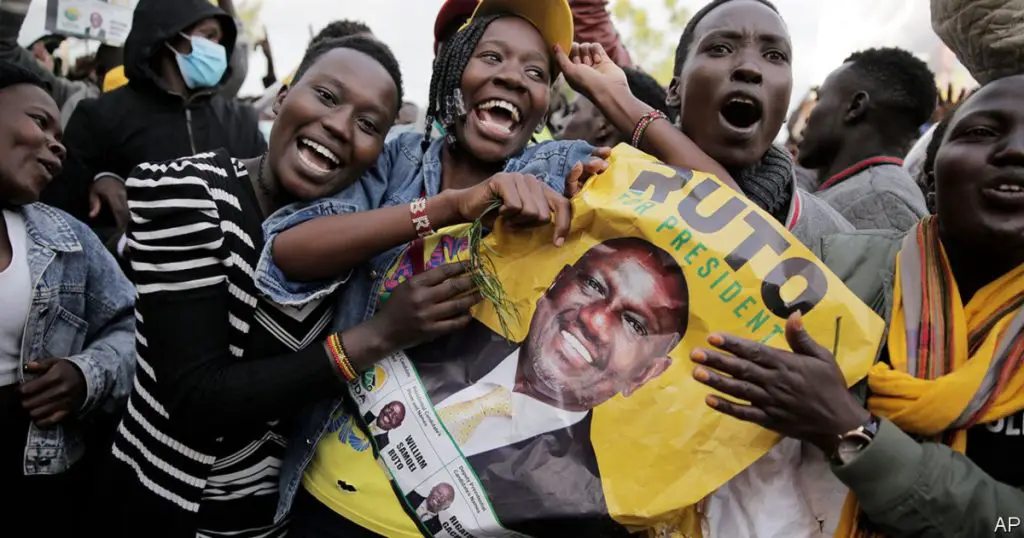- Kenya’s Purchasing Managers’ Index (PMI) fell below the 50 points mark to 44.2 in August 2022, down from 46.3 in July, to indicate deteriorating conditions for businesses in the country
- Businesses in Kenya were negatively affected by the August 2022 general elections, further deepening woes currently being experienced in the country’s private sector
- The decline was the lowest seen since the lockdown hit a period in April 2021 and was led by the construction and manufacturing sectors
Kenya’s Purchasing Managers’ Index (PMI) fell below the 50 points mark to 44.2 in August 2022, down from 46.3 in July, to indicate deteriorating conditions for businesses in the country.
As indicated in the August 2022 PMI survey, businesses in Kenya were negatively affected by the August 2022 general elections, further deepening woes currently being experienced in the country’s private sector.
The decline was the lowest seen since the lockdown hit a period in April 2021 and was led by the construction and manufacturing sectors. Readings above 50 signal an improvement in business conditions on the previous month, while readings below 50.0 show a deterioration.
The Stanbic Bank PMI Survey for August 2022 revealed apart from the election’s negative influence on business in Kenya, lower sales, a lack of cash and increased prices also hurt operations.
During the period under review, new businesses in the country’s private sector fell for a fifth successive month. Furthermore, the rate of decline accelerated to the highest marked levels since the lockdown-hit period in April 2021. As such, sales were noted to have continued to decline in all five main sectors covered by the survey, with construction recording the sharpest downturn.
The report however noted that the export business remained in expansion territory for a fifth straight month in August.
The latest upturn was sharp, though slightly softer than at the start of the third quarter. Where higher exports were recorded, firms largely related this to increased demand from Europe.
The sustained fall in demand encouraged firms to make further readjustments to their input purchases in August. Overall procurement levels fell for the fourth month running, with the rate of decline accelerating to the sharpest in 16 months.
Around 22 per cent of respondents signalled a decline in purchasing over the course of August, compared with 8 per cent that saw an increase.
Supply performance falls
For the first time since the height of the pandemic in the second quarter of 2020, Kenyan firms registered a deterioration in supplier performance in August.
This was shown by the seasonally adjusted Suppliers’ Delivery Times Index posting below the 50.0 neutral mark, albeit only fractionally.
Several panellists noted that the election had made some vendors reluctant to travel.
With sales decreasing, Kenyan businesses opted to reduce their stocks of purchases for the first time in seven months during August.
That said, amid some hopes that new business will recover following the election, the overall rate of stock depletion was only marginal.
Business in Kenya also saw another sharp rise in overall input costs in August.
The survey noted that the uptick was widely driven by increased prices for fuel and raw items, according to panellists, as well as a weakening in the exchange rate with the US dollar.
That said, the rate of cost inflation continued to slide from its peak in the second quarter, falling to the least marked since January.
Moreover, all five sectors registered a slower rise in input costs than in the previous month.
The rate of purchase price inflation slowed sharply for the second month in a row in August, as shown by a further marked fall in the respective seasonally adjusted index.
Approximately 15 per cent of firms saw purchase costs rise over the month. Higher prices were often linked to increased fuel prices, input shortages and high taxation.
During the month, businesses in Kenya registered a solid but softer increase in selling charges midway through the third quarter.
In response to falling cost inflationary pressures, the rate of charge inflation was the slowest recorded since the beginning of the year.
Output prices rose to a lesser degree in four of the five monitored sectors, while agriculture firms saw a renewed fall.
Hiring spree
According to the survey, backlogs of work held by Kenyan businesses rose for the third month running and at a slightly faster pace than in July.
In fact, the overall accumulation was the strongest for six months, albeit in line with the survey trend and only marginal. Work-in-hand rose, most notably in the manufacturing and services categories.
The survey also noted that businesses in Kenya registered a fractional decrease in employment during August, the third in the past four months.
While some firms added to their workforces to boost client services and complete work on time, other companies cited staff layoffs amid a decrease in output.
Higher employment in the agriculture and services sectors was offset by job cuts in wholesale & retail and construction.
The survey also noted that staff costs at Kenyan businesses rose during August.
During the period, firms that saw an uptick mostly attributed this to higher compensation offers due to the rising cost of living.
Despite picking up slightly from July, however, the rate of staff wage inflation was only mild overall.
